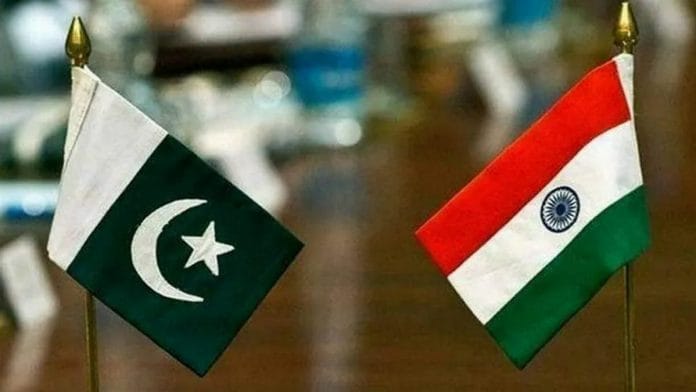New Delhi: A survey that aims to “take stock” 75 years after the 1947 Partition — asking citizens of India, Pakistan, and Bangladesh a series of questions on political, economic, social, and religious issues — has found that 44 per cent of Indians would support reunification with Pakistan.
Around 14 per cent of Indians said the Pakistani government could be trusted, while 60 per cent believed Bangladesh to be trustworthy, found the survey carried out by the Centre for Voting Opinion & Trends in Election Research (CVoter) and the Centre for Policy Research (CPR).
Conducted across the three countries using 15 languages between May and September, the survey’s first report, released last month — containing the responses of the 5,815 Indians surveyed — also assesses prevalent gender norms, what citizens had to say on India’s economic prospects, the country’s employment situation and its infrastructure.
When asked about democracy in India, the survey also found that 48 per cent of citizens believed it had been strengthened over the past 10 years. Around 51 per cent also believed India was nowhere close to autocratic rule, while about 31 per cent thought the country “might slide” into autocracy.
Partition
Around 46 per cent of Indians said the partition of India and Pakistan was the “right decision at that time”, and 44 per cent supported the division of Pakistan and Bangladesh.
The survey, however, noted that people in western India, comprising Gujarat, Maharashtra, Rajasthan and Goa, remained critical of the Partition. The region was also “supportive of any efforts of reunification”.
Age also proved to be a deciding factor in the survey. It said that only 30 per cent respondents above 55 years supported the 1947 Partition, against 57 per cent who thought it was “wrong for the two nations to be divided”.
Progress on infrastructure
When it came to living conditions, the condition of roads, water quality and employment in India, 79 per cent of respondents thought that infrastructural progress had been better than expected.
South India, however, disagreed a little. Only 28 per cent of respondents from the region found progress on infrastructure to be better than expected. In the east and north of India, 53 per cent and 51 per cent respectively shared this view.
The survey also noted that around 70 per cent of ‘upper-caste’ Hindus and people from the Other Backward Classes (OBC) and Scheduled Tribes (ST) believed that progress in infrastructure had been satisfactory. Around 60 per cent of respondents from religious minorities and about 47 per cent of those from Scheduled Castes (SC) found infrastructure development to have been worse than expected.
Economic prospects
When it came to the country’s economic prospects, the survey found most Indians to be optimistic. On average, about a third of respondents agreed that India’s economic condition would improve in a few years, while about 26 per cent predicted it would get worse.
Religious minorities such as Muslims, Christians, and Sikhs, however, reported pessimism. Around 53 per cent of Muslims thought the economic condition of India would progressively worsen.
Gender disparities
The survey also sought to assess how prevalent gender norms affected the country’s economy. Around 62 per cent of respondents said women in their households needed permission to take up jobs, participate in political meetings, or wear the clothes of their choice.
When assessed on these terms, the survey found regional trends: Women in the south enjoyed the least autonomy, while those living in western India enjoyed greater freedom.
The survey also found that 51 per cent of urban women needed permission from their families to work outside their homes, while the percentage stood at 65 per cent for those living in rural India.
When it came to politics, 61 per cent of women said that they had never participated in a rally or campaign. The survey also found that women with more education participated less in political rallies and campaigns.
Also read: Let’s talk about Partition. We owe this debt to the dead and the displaced






